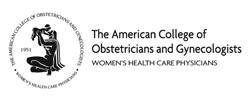Conditions
Abnormal Pap Smear
An abnormal Pap smear may indicate the presence of infection or abnormal cells called dysplasia, but does not necessarily denote cancer. Abnormal results highlight the requirement of supplementary testing to identify & confirm an underlying problem.
Fibroids
Uterine fibroids are non-cancerous (benign) tumors, commonly seen in women of childbearing age. Fibroids are composed of muscle cells & other tissues. They develop in & around the wall of the uterus or womb. Uterine fibroids are usually round or semi-round in shape.
Menstrual Disorders
Menstrual disorders are a set of problems that affect a woman’s monthly menstrual cycle (monthly bleeding). They include no menstruation (amenorrhea), light or irregular periods (oligomenorrhea), heavy periods (menorrhagia) & painful periods (dysmenorrhea).
Ovarian Cyst
An ovarian cyst is a fluid filled sac or pouch which forms on the ovary. Ovarian cysts, in most cases are harmless and resolve on their own. If the cyst is cancerous, it may cause problems and thus needs medical intervention. Ovarian cysts are common in women of childbearing age.
Post-menopausal bleeding (PMB)
Bleeding after menopause, also known as post-menopausal bleeding (PMB), is a condition characterized by vaginal bleeding after 12 months of menopause. PMB is not pertinent to young women having amenorrhea (absence of menstrual periods) due to anorexia nervosa or having a pregnancy followed by lactation. PMB may be related to those young women who are suffering from premature ovarian failure or premature menopause.
Menopause Care
Menopause is a natural biological process resulting in a permanent cessation of menstruation. Menopause usually occurs in women during the fifth decade of their life. Menopause is confirmed by an absence of menstrual periods for 12 months consecutively. Sometimes this stage of life can cause symptoms such as vaginal dryness, emotional lability, hot flashes, & changes in sexual function/desire.
Contraception
Contraception, also known as birth control practice is prevention of pregnancy by interfering with the process of conception & implantation. Numerous methods of contraception are in practice & include barrier or hormonal methods, withdrawal, natural family planning, abstinence, & sterilization (surgery). Some of these methods are confined for women & others for men, while some of the methods are reversible & some are permanent methods.
Menorrhagia
Menorrhagia is a condition characterized by abnormally heavy or extended menstrual bleeding. With menorrhagia, you may have excessive blood loss & pain that disturbs your normal activities.
Endometriosis
Endometriosis is a common gynecological problem affecting women of reproductive age. It occurs when the tissues of the uterus start growing on surfaces of other organs in the pelvis.Endometrium may grow on ovaries, fallopian tubes, outer surface of uterus, pelvic cavity lining, vagina, cervix, vulva, bladder or rectum.
Polycystic Ovarian Syndrome (PCOS)
Polycystic ovarian syndrome (PCOS) is a common endocrinal disorder as well one of the common causes of infertility among women.It is characterized by an ovulation dysfunction or impedance to the normal growth and release of eggs from the ovaries.It is commonly seen in women of child bearing age and is rare after menopause. The hormonal imbalance results in enlarged ovaries containing several small cysts (fluid-filled sacs).












